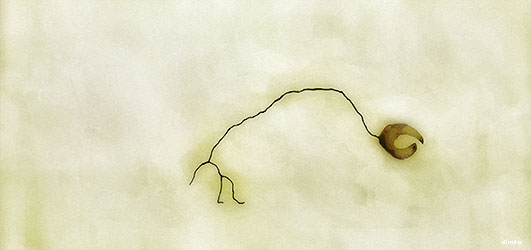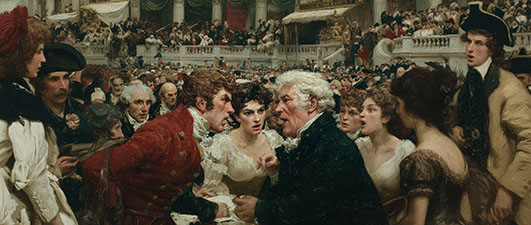Friction Gives Us Moderation in the Real World
The modern digital world has removed friction from a vast spectrum of everything that can exist in our lives. Hyper-accessibility of information, the number of people we can connect with, what we can create, watch, learn, and share.
Not so long ago, all of this was available, but with certain limitations. We could meet and talk even with strangers, but we couldn’t talk to thousands a day. Teenage boys might have had a chance to accidentally see a naked female body, but now you can see thousands in an hour—and not just bodies, but all sorts of things those bodies do.
You couldn’t spend all day writing nasty things to strangers without any level of responsibility. Hundreds of millions of hours of video are uploaded to YouTube every year.
Some of this is clearly good. But much of it is also bad, like overeating sugar or excessive consumption of anything. It’s destroyed our sense of measure. Yes, previously that measure didn’t depend on rationality, but rather on the complexities of the real world—but it was still a measure. And when we overcame those complexities, we got informational, social, erotic, and other kinds of “obesity.” Actually, it’s even worse, because even in the worst, most disgusting case of obesity, there are still physical limits, while much of what’s happening now has no limits at all. Yes, some people can handle this abundance, filter it, and use it wisely. But just like with food—not everyone overeats, but the obesity epidemic is real, and most people suffer from excess, not lack; a small fraction suffers greatly, but the majority suffers noticeably.
And we keep losing any control over all of this, handing over what we had left to algorithms designed to extract maximum profit and further optimized by soulless neural networks.
Take YouTube, for example. An amazing service, a treasure trove of interesting content. And this is largely possible because there are no restrictions. But the sheer volume—over 180 million hours of video per year—is already one of the main issues: no team of humans could ever curate or moderate such a stream. So this becomes an argument against any filters or human curation. Why can’t the worst of the worst be filtered out? Well, supposedly it’s impossible, because the scale is just too big. But maybe this “ability” to filter out the worst is precisely the friction that’s necessary? YouTube definitely wouldn’t be what it is now if the corporation were responsible for the content. There would be less available, less interesting, less educational content. But there would also be less horror. And most importantly—if it wasn’t on YouTube, where would it be? Of course, maybe it just wouldn’t exist in video form, but the time spent watching, the effort put into creating, etc., would go into something else, and if everything on the internet had the friction of the real world, maybe the real world would be better, would develop more brightly. Maybe there would be more beautiful books. Or maybe less. It’s not clear.
Google, with its automated organization of information, simply crushed and obliterated all the manual directories people once created, like DMOZ or Yahoo. Now we see how those directories died back then. But what if Google hadn’t killed them, and they had continued to develop? Maybe there would have been more Wikipedia-like projects. Of course, history doesn’t deal in “what ifs,” but we can start caring about it now. And the truly important question is: who will decide what exactly to filter and how to limit? In the past, for example, the press and academia enjoyed a higher level of trust, since taking on that responsibility meant their commitment to objectivity was a vital part of their reputation. Today, this role is increasingly held by algorithms—and trust in them is almost nonexistent. Especially since many of them are secret, and often they contain obvious “dark patterns” or things that, if exposed, might even cross into criminal territory.
So here’s what I’m trying to say. The internet has given us unimaginable expanses of access without any real friction or resistance, and for years we’ve rejoiced at how wonderful this is. But maybe this resistance, friction, and other kinds of limitation from the real world are still necessary for us as humans? Maybe it’s like the paradox of choice: having no choice at all is bad, but when choice is too broad, it leads to paralysis, anxiety, disappointment, and dissatisfaction. This whole hyper-accessible world is like an ultra-slippery floor, where you can’t stand, you keep falling, sometimes even smashing your jaw so hard you see stars.
Total accessibility is an extreme, just like total lack of access. What we need is moderation, a golden mean. I say some things here bluntly. Maybe it’s unpleasant to hear, but I think we need a wake-up call.



